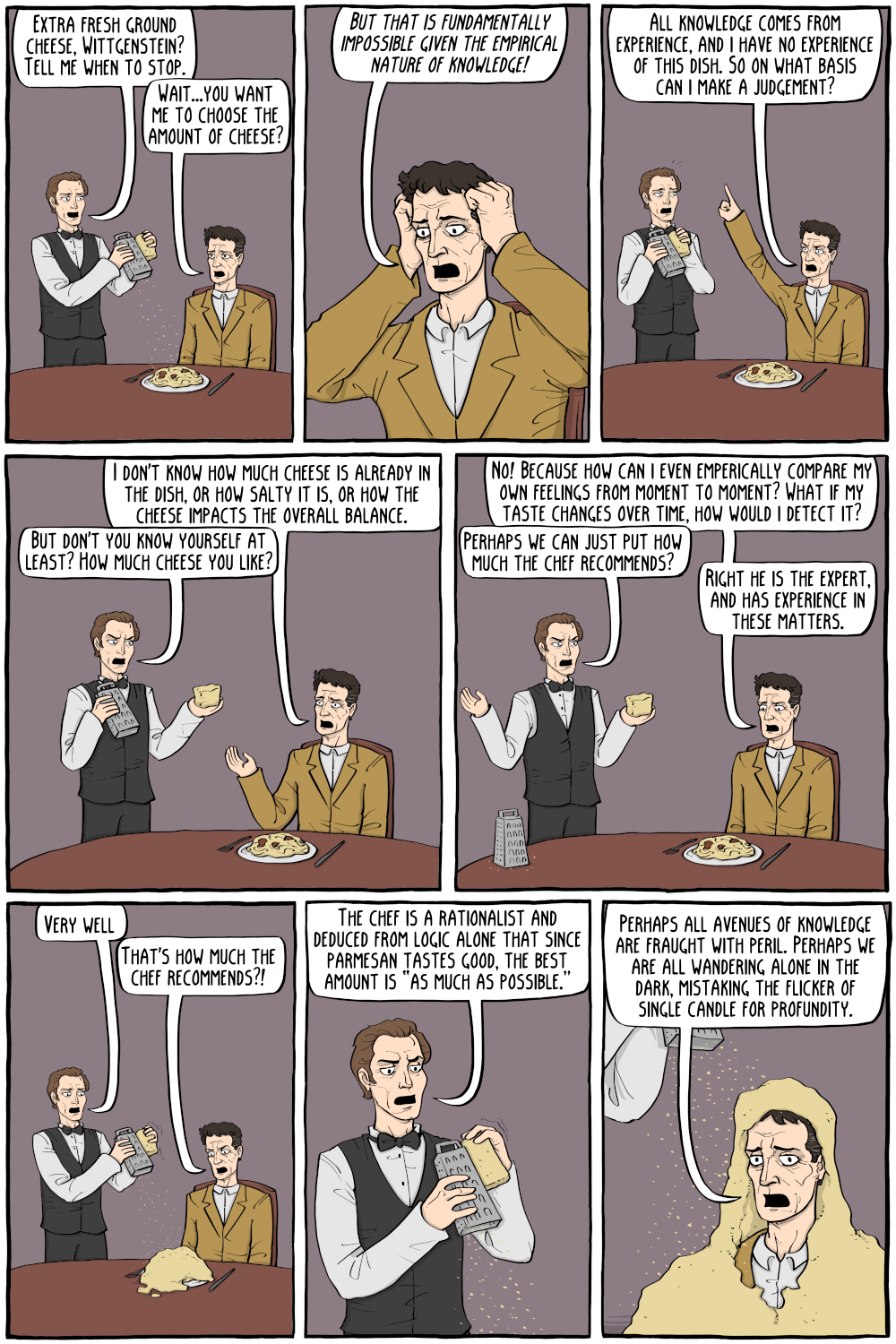this post was submitted on 04 Dec 2023
787 points (97.8% liked)
Comic Strips
15907 readers
14 users here now
Comic Strips is a community for those who love comic stories.
The rules are simple:
- The post can be a single image, an image gallery, or a link to a specific comic hosted on another site (the author's website, for instance).
- The comic must be a complete story.
- If it is an external link, it must be to a specific story, not to the root of the site.
- You may post comics from others or your own.
- If you are posting a comic of your own, a maximum of one per week is allowed (I know, your comics are great, but this rule helps avoid spam).
- The comic can be in any language, but if it's not in English, OP must include an English translation in the post's 'body' field (note: you don't need to select a specific language when posting a comic).
- Politeness.
- Adult content is not allowed. This community aims to be fun for people of all ages.
Web of links
- [email protected]: "I use Arch btw"
- [email protected]: memes (you don't say!)
founded 2 years ago
MODERATORS
you are viewing a single comment's thread
view the rest of the comments
view the rest of the comments

If the rationalist deduces what is logical based on their empirical experience then their reasoning is flawed. We have to accept the axiomatic truth that our senses are limited and cannot account for an absolute truth.
To separate valid perceptions from invalid ones, a person first must assume that the world can be known through the senses. They must also assume that the world is objectively real. These assumptions do not get along well with one other. To say the world is objectively real is to say it is independent of and indifferent to sense perception. Then what in the world can we know? We can know only the effects of the parmesan cheese upon our senses, not the cheese itself.
The objectively real world may be separate from and indifferent to sense perception, but sense perception isn't indifferent to the objective world. Sense perceptions are caused by an interaction of our sense organs and the world. Surely from repeated patterns of sense perception we can draw some correct inferences about the external world?
How can we be sure that those inferences are correct? Any appeal to empirical evidence would be circular reasoning.
"correct" is a heavy word there. Would reproducible and predictable suffice?